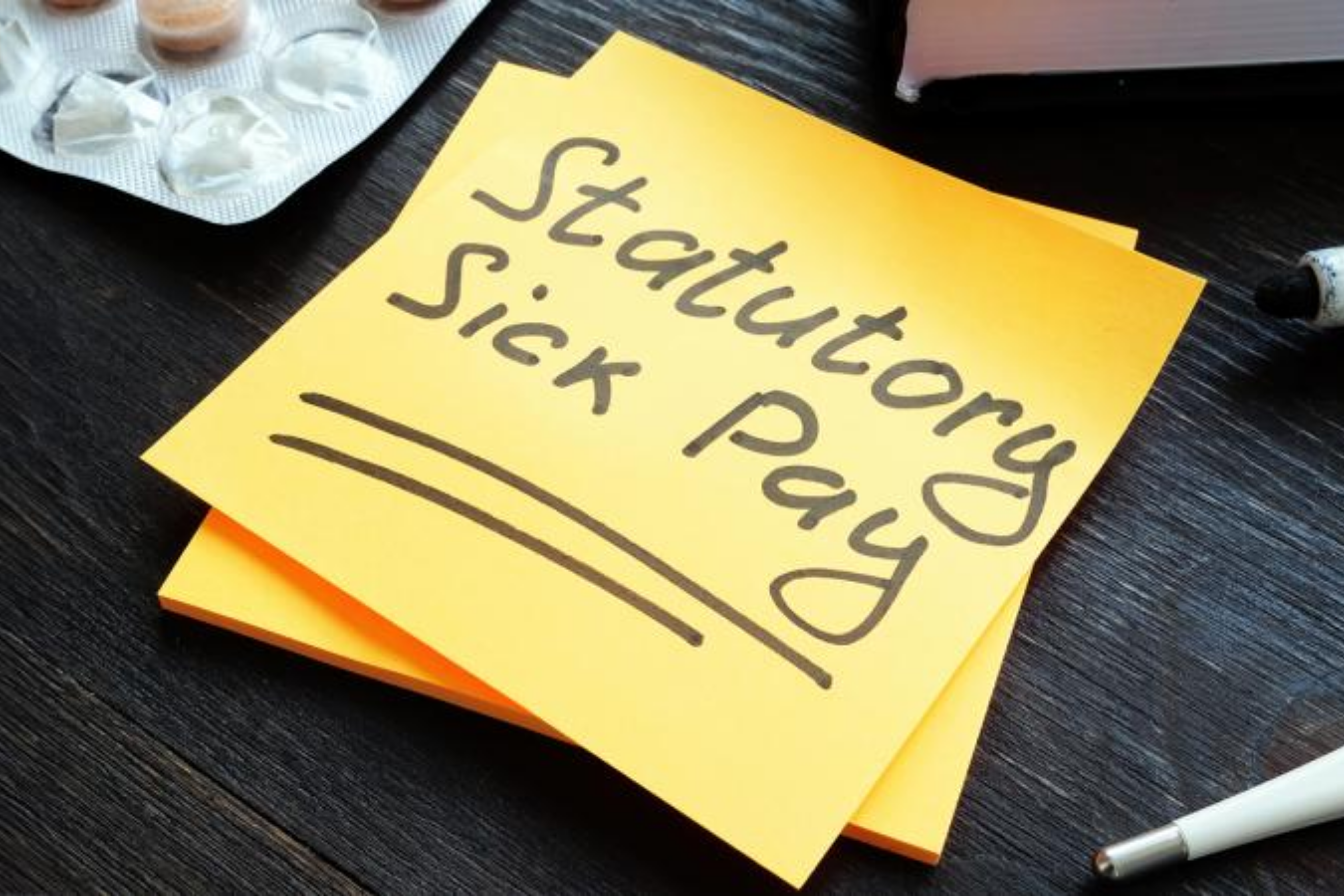How to Handle Sick Pay, Maternity Pay, and Other Statutory Leave and Payments

Understanding statutory sick pay, maternity pay, and other statutory leave entitlements is crucial for business owners to ensure compliance with the law and fair treatment of employees.
This guide will help you navigate the complexities of these statutory payments, from eligibility to the processes for managing them.
Sick Pay
What is Statutory Sick Pay (SSP)?
Statutory Sick Pay (SSP) is the minimum amount an employer must pay an employee when off sick. The weekly rate for SSP is currently £118.75 (as of 2025), and it is paid for up to 28 weeks. Employees are entitled to SSP if they are sick for 4 or more consecutive days (including non-working days).
Eligibility for SSP
To be eligible for SSP, employees must:
- Have an employment contract.
- Be sick for more than three consecutive days.
Earn an average of at least £125 per week.
Notify the employer of their sickness within the time frame set out in the company policy (usually within seven days).
Employers are required to maintain records of the SSP they pay and must keep these for at least three years. If the employee's sickness continues and their contract is terminated, they may be able to apply for Employment and Support Allowance (ESA).
When to Start and Stop SSP
SSP payments begin after the employee has been sick for three consecutive days. They are not paid for the first three days unless the employee has been paid SSP in the last eight weeks and has not received it for those days previously. SSP stops when the employee returns to work or when they no longer meet the eligibility criteria.
Maternity Pay
What is Statutory Maternity Pay (SMP)?
Statutory Maternity Pay (SMP) is the amount an employer is legally required to pay to employees who are on maternity leave. SMP is typically paid for up to 39 weeks. The first six weeks are paid at 90% of the employee's average weekly earnings (AWE), and the remaining 33 weeks are paid at a flat rate of £187.18 or 90% of the AWE, whichever is lower.
Eligibility for SMP
To qualify for SMP, employees must meet certain criteria:
- They must have been employed by you for at least 26 weeks by the 15th week before their baby is due.
- They must earn at least £125 per week during an 8-week relevant period.
- Employees must provide proof of their pregnancy, usually in the form of a MATB1 certificate, issued by a doctor or midwife.
Employees on maternity leave are entitled to return to the same or a similar job after their leave ends. If you stop trading, you are still required to pay SMP.
How Long Does SMP Last?
Statutory Maternity Pay lasts for up to 39 weeks. The pay is broken down into two main periods:
- First 6 weeks: 90% of the employee’s average weekly earnings (AWE).
- Remaining 33 weeks: £187.18 or 90% of the AWE (whichever is lower).
Employers can offer more than the statutory minimum if they have a company maternity scheme.
Reclaiming SMP
Employers can typically reclaim 92% of SMP paid to employees. If the business qualifies for Small Employers' Relief, they may be able to reclaim 108.5%.
Other Statutory Leave
Paternity Leave
In the UK, employees are entitled to paternity leave if they are the father, the partner of the mother, or the intended parent in a surrogacy arrangement. The statutory paternity leave entitlement is one or two weeks. Statutory Paternity Pay (SPP) is paid at the same rate as SMP, £187.18 or 90% whichever is lover.
Employers are not required to pay for paternity leave unless they offer it as part of a company policy or contractual arrangement. However, as with maternity leave, employers must comply with statutory minimums.
Parental Leave
Employees are also entitled to parental leave (unpaid) if they have worked for the same employer for more than one year. This leave can be taken to care for a child up to the age of 18. Parental leave is typically 18 weeks for each child, and employees must give at least 21 days' notice before taking the leave.
Adoption Leave
Adoptive parents are entitled to adoption leave under the same conditions as maternity leave. Statutory Adoption Pay (SAP) follows the same structure as SMP and can be paid for up to 39 weeks.
By understanding your obligations as an employer, you can ensure that you’re fully compliant with UK employment law. It’s essential to have clear policies in place for sick pay, maternity pay, and other statutory leave, and ensure that your employees are aware of their rights. For many businesses, outsourcing payroll can help simplify the process of meeting these obligations accurately and on time, providing peace of mind that all statutory requirements are properly managed. Request a free, no obligation quote from dhpayroll.
FAQs Around Sick Pay, Maternity Pay, and Other Statutory Leave and Payments
Does an Employer Have to Pay Statutory Maternity Pay?
Yes, if an employee meets the eligibility criteria, an employer must pay Statutory Maternity Pay (SMP) for up to 39 weeks, as outlined in the Maternity Pay section above.
Can I Claim Statutory Sick Pay as an Employer?
Employers cannot claim Statutory Sick Pay (SSP) for themselves. However, if an employee qualifies for SSP, the employer is responsible for paying it.
Can an Employer Claim Back Statutory Maternity Pay?
Yes, employers can typically reclaim 92% of the Statutory Maternity Pay (SMP) they pay out. If the business qualifies for Small Employers' Relief, they can reclaim 108.5% of the amount.
How Long Does Statutory Maternity Pay (SMP) Last?
Statutory Maternity Pay (SMP) lasts for 39 weeks. The first six weeks are paid at 90% of the employee's average weekly earnings, and the remaining 33 weeks are paid at the statutory rate of £187.18 per week or 90% of their average weekly earnings, whichever is lower.
Are Employers Required to Pay Paternity Leave?
No, employers are not legally required to pay paternity leave unless it is specified in the employment contract or a company scheme. However, on the birth or adoption of a child paid leave is available (if the employee qualifies) and this is Statutory Paternity Pay (SPP) set at £187.18 or 90% of weekly earnings whichever is lower per week for up to two weeks.
Can Small Businesses Get Financial Support for Statutory Payments?
Yes, small businesses can get financial support to help with statutory payments. For Statutory Maternity Pay (SMP) Adoption (SAP) and Statutory paternity Pay (SPP), small employers may be able to reclaim up to 92% of the payments made. If they meet certain criteria, such as having a low number of employees, they may be eligible for Small Employers' Relief and can reclaim up to 108.5%.
Are Statutory Payments Affected by Zero-Hour Contracts?
Zero-hour contracts can affect eligibility for statutory payments like sick pay and maternity pay. For example, employees on zero-hour contracts may still be eligible for Statutory Sick Pay (SSP) if they meet the requirements, such as having worked a sufficient number of hours and earning at least £125 per week. However, the irregularity of their hours can make calculating these entitlements more complex.



.png)
.png)



Comments